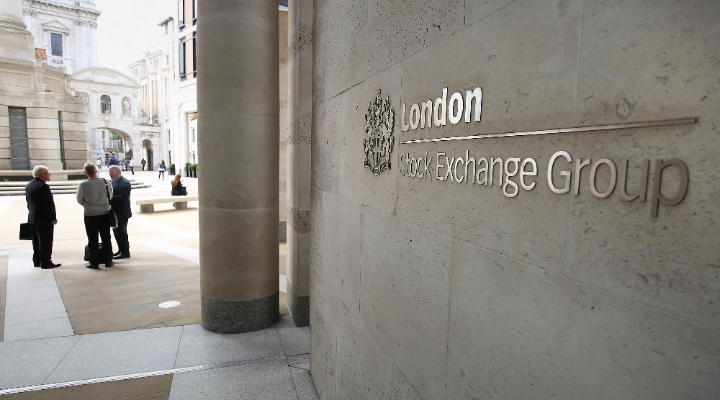
While the FTSE 100 was one of the few equity markets to offer a positive return over 2022, this doesn’t reflect the whole story for UK equities.
We all know the FTSE 100 is dominated by "old economy" sectors such as oil and gas, resources and banks, which are typically cyclical, capital-intensive and environmentally damaging. These benefitted directly from either rising interest rates or rising commodity prices – or both – giving the index a positive total return over the year on aggregate.
Further down the cap scale, though, it’s a different story.
Look at the UK equity All-Share Index, below stock number 20 by value, and you will find more dynamic, less capital-intensive, faster growing and in many cases, global businesses. They have seen valuations retreat to even lowlier levels relative to other global markets.
While market volatility remains high, there are signs the tides of inflation and central bank rates cycle are shifting. With a potential change of market dynamics in sight, investors might want to think again about the potential for UK listed companies that offer compounding earnings growth and cashflows.
Valuations Are Low – For Now
The UK equity market is currently trading at a 28% discount on a forward 12-month price-to-earnings basis when compared to global equities (excluding UK) and a much larger discount from a price-to-book perspective (source: Berenberg as at 27 April 2023).
After adjusting for industry weightings, UK equities remain at a substantial discount to US equities – it is therefore cheaper to buy a stream of US cash flows on the UK stock market versus the US.
This discount has not always existed.
On 1 June 2016, shortly before the Brexit referendum, UK equities traded at a 2% premium to global equities (ex-UK) versus the 28% discount that they currently trade on.
This valuation anomaly has not gone unnoticed by private equity buyers, who bid for nine UK-listed companies over April 2023 alone.
This hints at a something that could contribute to a revival for UK equities.
A more emollient approach to Europe and a change in the mood music could spell an adjustment in the perceived potential for the UK economy. Perhaps the Windsor Agreement is the first step to a meaningful shift in reversal?
A change in the inflationary environment could also see a change in pace, and leading indicators suggest inflation will fall from current elevated levels over time. Many of the distortions to global trade are normalising, reducing inflationary forces to some degree.
Over the past year the price of copper has fallen 14%, wheat 33%, cotton 41%, and natural gas 61% (source: Bloomberg, 27 April 2023), while shipping costs – as reported by the Global Freight Rate Index – are close to pre-Covid-19 levels, as at 1 May 2023.
The predictability of supply chains has improved with port congestion falling materially, reducing the need for companies to over-order and distort the real level of demand.
While labour inflation remains stubborn, particularly in the UK, company management teams we talk to are highlighting reduced staff churn. They expect wage inflation to reduce over the next year.
The UK is home to many global companies that are well-placed to benefit from secular thematic and economic tailwinds, and current valuations could make them very attractive when the global economy improves.
Government initiatives may also change the picture. Interventions such as the Inflation Reduction Act in the US are encouraging companies to see the US as their natural home.
Our conversations suggest businesses are well aware of the issue, as are UK politicians across the political spectrum, and we would hope and expect to see measures adopted that will encourage incremental investment in the UK economy.
A period of dollar weakness could also make a big difference.
Where Are The Opportunities, What Are The Risks?
Rising interest rates mean the days of zero-interest risk-free borrowing are likely over. As a result, "creative destruction" can function once again as the economic bar rises and businesses that are heavily indebted, have no pricing power and cannot grow organically will languish or disappear.
With this in mind, we look for companies with pricing power, a return on capital ahead of cost of capital, strong balance sheets and where the opportunity exists to increase the number of goods or services sold over time. Existing examples in our portfolios include Rentokil, LSEG, Rotork, and Weir.
Over the last six months we have taken positions in SSP and GB Group. GB Group provides identity intelligence solutions to both businesses and consumers that transact online to ensure both parties are who they purport to be and is benefitting from the growth in online payments.
SSP is a market-leader in the global food and beverage travel concessions market. With a focus on travel, in particular airports, SSP may deliver high returns on capital employed as well as multi-national profit growth as it adds additional space, recently added space matures and legacy space benefits from ongoing recovery of the travel sector as the effects of Covid-19 recede. Both share prices have de-rated materially.
Patience is a Virtue
Market volatility will remain in the near term as central bankers move into a new data-dependent framework. If inflationary pressures unwind and interest rates fall, perhaps combined with a change in the mood music around the UK economy, there is a potential for a boost for UK equities as global investors show renewed interest.
In the meantime, it is important to look for companies that can not only weather the hard times, but which have the capacity to thrive where others fail. When a change in sentiment comes, these are the companies that could provide the largest benefit to patient investors.
Chris St John is UK equity fund manager at AXA Investment Managers



























